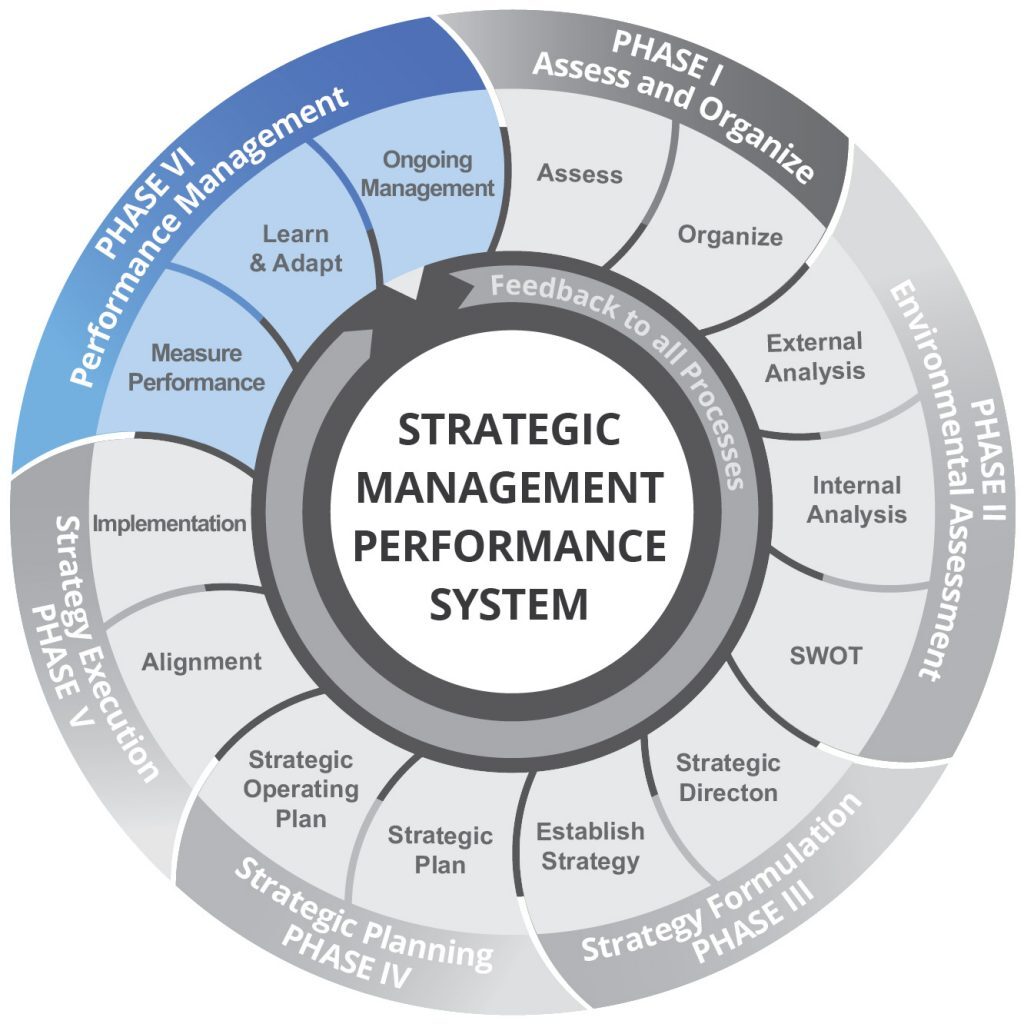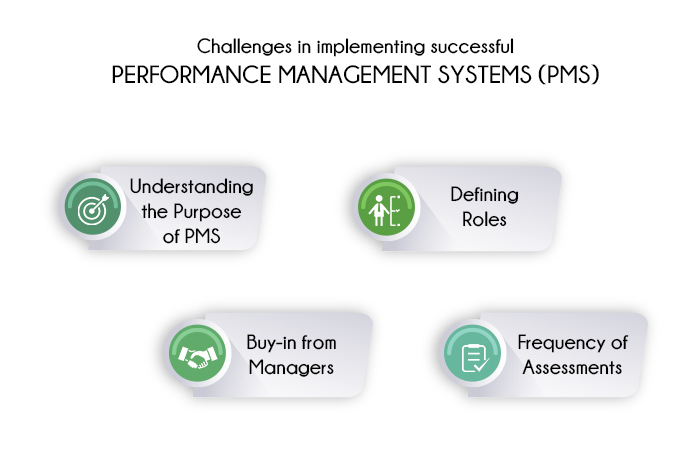
Employees are what make an organization valuable. For an organization to achieve continued success it needs to ensure performance management that it has the right people, with the right guidance and motivation, working to their full potential.
For several decades now, organizations have sought to do exactly this. Under the umbrella of Performance Management Systems, different strategies have been adopted and implemented with varying degrees of success. However, given the disruptive nature of today’s business environment, many leaders are finding it increasingly difficult to create effective performance management strategies that can guide, motivate, and retain their talent.

What is Performance Management?
The performance of employees and now depend on a multitude of factors such as:
As a result of this, organizations are beginning to question whether it is feasible for them to invest in developing comprehensive performance management systems.
While the uncertainty surrounding the effectiveness of some performance management processes is valid, one thing is for certain; they are critical to the success of a business.
To understand why some organizations today are hesitant to invest extensive time and effort in creating performance management systems, an understanding of the common challenges that they face while trying t
Employees are what make an organization valuable. For an organization to achieve continued success it needs to ensure performance management that it has the right people, with the right guidance and motivation, working to their full potential.
For several decades now, organizations have sought to do exactly this. Under the umbrella of Performance Management Systems, different strategies have been adopted and implemented with varying degrees of success. However, given the disruptive nature of today’s business environment, many leaders are finding it increasingly difficult to create effective performance management strategies that can guide, motivate, and retain their talent.
As a result of this, organizations are beginning to question whether it is feasible for them to invest in developing comprehensive performance management systems.
While the uncertainty surrounding the effectiveness of some performance management processes is valid, one thing is for certain; they are critical to the success of a business.
To understand why some organizations today are hesitant to invest extensive time and effort in creating performance management systems, an understanding of the common challenges that they face while trying to formulate and implement their strategies is required.

Challenges in implementing successful Performance Management Systems (PMS)
• Understanding the purpose of PMS: Most organizations either fail to identify a clear purpose behind implementing performance management processes, or are unable to clearly communicate them to their employees. If the key stakeholders of a process do not consider it to be relevant, it is unlikely to succeed.
• Defining roles: As problem statements and methods of working become more complex, organizations are finding it increasingly difficult to clearly define roles. Employees are required to display multiple competencies and take up responsibilities across functions. As a result, the performance of employees needs to be assessed against multiple metrics which cannot be done using a linear approach.
• Buy-in from Managers: Managers have a crucial part to play in most performance management processes. They are required to assess employee performance against several factors and effectively communicate their feedback to employees. However, most Managers either do not believe in the PMS of their organization or simply do not possess the necessary skills to implement them.
• Frequency of assessments: Most performance management processes are structured in a manner that makes them difficult to execute on a regular basis. Organizations tend to conduct their performance reviews on an annual or biannual basis. As a result of this, most Managers are required to assess and communicate several months of performance to their employees in a single discussion. Further, employees begin to look at the process as a mere formality rather than an opportunity to reflect and learn.
• Resource Intensive: Implementing a PMS can be a resource intensive process; particularly the resource of time. However, in most cases, organizations do not believe that the outcomes and benefitsjustify such heavy allocation of resources to the effort. As a result of this, organizations tend to focus their resources on other strategies and programs that have a more tangible impact.
• Narrow Focus Areas: Employees are increasingly required to have better problem-solving and decision-making skills to keep up with rapidly changing expectations in a business environment. They are taking up greater responsibilities and creating value in ways that traditional performance management systems simply cannot measure. As a result of this, employees often feel undervalued when their effort and its impacts are not acknowledged.
Given the nature and complexity of challenges faced while formulating a robust performance management strategy, organizations frequently end up investing very little time and effort in creating it; instead choosing to focus their resources on solving immediate issues. While this may yield results in the short-term, the long-term ramifications of such a decision can be significant. In order to stay on course and focused while addressing these challenges, organizations must clearly identify the objectives and potential benefits of its PMS. These serve as a necessary reminder of why the process is relevant.
Benefits of an effective Performance Management System
• Alignment of goals with organization strategy: A well-structured PMS affords an organization the opportunity to tie the individual goals of an employee to its overall strategy. This allows the employee to gain a clear understanding of how the work that she/he does contributes to the overall success of the organization. An employee that understands the purpose of her/his role is bound to be more productive and help in the creation of a culture of transparency.
• Creation of a high-performing workforce: A good performance management system consistently provides employees with guidance on how to improve their performance. It helps managers identify the top performers that have the potential to be groomed for more senior roles, while at the same time identifying underperformers and helping them overcome skill gaps.
• Improved retention rates: An organization whose performance management system has the interests of its people at its core, results in the creation of an environment where employees feel valued. This is one of the key aspects that contribute to a successful retention strategy. Organizations that are able to retain and build a strong core of high-performing employees are set up for long-term success.
• Cost benefits: Investing in a comprehensive performance management system gives organizations access to an abundance of information on how to efficiently use their financial resources, and is a cost-effective long-term strategy. By gathering insights from the PMS data, organizations can make well-informed decisions on how to invest in a variety of other initiatives such as skills training, learning and development, and performance appraisals. Further, as a result of improved retention rates organizations are able to cut down their hiring costs significantly.
While the challenges and benefits associated with creating a good PMS are well-documented, the most crucial aspect of the process is what most business leaders often struggle to understand and address; actually creating an effective method to assess employee performance. Organizations vary from one another in a plethora of ways such as industry, size, and organizational structure, among others. As a result of this, there is no one-size-fits-all PMS that organizations can adopt. Each situation poses a unique challenge that must be approached in its own context. While the details of each process will vary from one organization to another, there are a few attributes that must be a part of every PMS.
Attributes of a Good Performance Management System
• Clear vision and effective communication:
Before setting out to create a PMS, business leaders must clearly outline what they hope to achieve by implementing it. Next, they must identify a method to effectively communicate their vision to employees, managers, and leaders across functions. When a majority of the people involved understands and believes in the purpose of an initiative, it is more likely to succeed.
•Investing in Technology and Experts: Formulating and implementing a PMS is an iterative and continuous process. It requires a set of dedicated resources to plan, monitor, and put into effect such a process. Business leaders who rely on experts with end-to-end experience in managing these processes using the right tools are more likely to be able to execute them successfully.
•Involving Managers in decision-making: Given the critical role that Managers are expected to play in the implementation of a PMS, it is only logical that they be included in the decision-making process while formulating a strategy for it. Incorporating Manager inputs to the process ensures their buy-in to its purpose and also allows for tweaking of the process based on challenges that they foresee.
•Continuous feedback process: An effective PMS is one that provides employees regular feedback. This goes a long way in ensuring that employees who take part in the process still believe in its relevance. Organizations must take measures to ensure that performance reviews are conducted as frequently as is feasible for all stakeholders.
Performance Management Systems, like every aspect of a business, must continuously be revisited to ensure that they are serving their intended purpose. While some business leaders are rightfully questioning the efficacy of traditional methods of assessing employee performance, it is clear that the concept of performance management as a process, with all its benefits, will always be relevant. Numerous organizations that have implemented well-planned performance management systems have reaped the rewards for their efforts and are on course for long-term success. By clearly identifying what goals they hope to achieve, communicating its purpose to its employees, investing in the right set of experts and tools, and creating a structure that is well-prepared to take on challenges, organizations must seek to create effective performance management systems and thrive in any business environment.